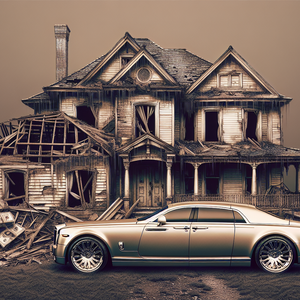Beyond the Surface: The Life of an Underwater Welder

The daily activities of an underwater welder can vary significantly depending on the specific job and location. Generally, their day begins with a comprehensive safety briefing, where they review protocols and details of the project. Safety is paramount in this profession, as underwater welders operate in potentially hazardous environments. John Smith, a seasoned welder, reflects, “Every dive is a mix of excitement and anxiety. You have to be prepared for anything—equipment failure, strong currents, or even encounters with marine life.” Once the briefing concludes, welders gear up in specialized dry suits and meticulously prepare their equipment. This preparation process can take over an hour as they check oxygen tanks, welding gear, and communication systems. The anticipation builds as they descend into the water, often hundreds of feet below the surface, where the real work begins.
The Challenges of Underwater Welding
Underwater welding presents a distinctive array of challenges. One of the most significant hurdles is limited visibility. Underwater welders often find themselves working in murky waters, making it challenging to see their workspace and equipment. The cold temperatures can also lead to fatigue and decreased dexterity, complicating tasks that might be straightforward on land. Additionally, the physical exertion required to work underwater adds another layer of difficulty. Movements can become laborious, and welders must exert more energy than they would on dry land. Sarah Johnson, another experienced underwater welder, emphasizes the importance of vigilance. “You have to be alert,” she states. “There are times when you’re working near large structures or vessels, and one wrong move can be dangerous.”
The Rewards of the Job
Despite the inherent challenges, many underwater welders find their careers immensely rewarding. The thrill of diving into the ocean and the satisfaction of completing complex projects provide a sense of fulfillment that few other jobs can match. Moreover, the financial incentives are substantial. Underwater welders typically earn higher wages than their land-based counterparts, reflecting the specialized skills required and the risks involved. According to industry data, experienced underwater welders can earn salaries ranging from $50,000 to over $100,000 annually, depending on experience, location, and project scope. The opportunity to travel is another significant perk of the job. Welders often find work in diverse locations—from oil rigs in the Gulf of Mexico to underwater construction sites in remote parts of the world.
Personal Stories
The camaraderie among underwater welders is a vital aspect of their experience. Many welders form strong bonds with their colleagues, often sharing adrenaline-fueled projects and facing similar challenges. John shares, “It’s like being part of a family. We rely on each other, not just for our safety but for our morale. The dives can be tough, but having a good team makes all the difference.” Sarah adds, “We have a shared understanding of what it takes to do this job. The stories we tell about our dives, the challenges we overcome, and the successes we celebrate together create memories that last a lifetime.” These relationships foster a supportive environment, enabling welders to tackle the physical and mental demands of their jobs together.
The life of an underwater welder is an extraordinary blend of challenges and rewards. From rigorous safety protocols to the exhilarating experience of working beneath the waves, these professionals navigate a unique career path that few can claim. Through personal stories and shared experiences, it becomes clear that underwater welding is more than just a job; it is a way of life that offers adventure, camaraderie, and financial stability.
Commercial Diver
Marine construction firms, offshore oil and gas companies, environmental organizations
Core Responsibilities
Perform underwater inspections, repairs, and installations for infrastructure, such as bridges and dams.
Conduct underwater surveys using sonar and other technology to assess conditions and ensure safety.
Collaborate with engineers and project managers to develop diving plans and safety protocols.
Required Skills
Certified in commercial diving (e.g., ADCI, IMCA).
Strong understanding of underwater safety practices and emergency procedures.
Proficient in using underwater tools and equipment, including cutting and welding gear.
Subsea Engineer
Oil and gas companies, engineering firms, marine technology companies
Core Responsibilities
Design and oversee installation of subsea systems for oil and gas extraction, including pipelines and manifolds.
Analyze data from subsea sensors and equipment to ensure operational efficiency and safety.
Troubleshoot and resolve technical issues arising during underwater operations.
Required Skills
Bachelor’s degree in engineering (mechanical, civil, or marine).
Experience with subsea technology and project management.
Familiarity with CAD software and subsea equipment specifications.
Underwater Welding Inspector
Marine construction companies, inspection agencies, regulatory bodies
Core Responsibilities
Evaluate the quality and integrity of underwater welds through visual inspection and non-destructive testing methods.
Prepare detailed inspection reports and collaborate with project teams to address any welding deficiencies.
Ensure compliance with industry standards and safety regulations throughout underwater projects.
Required Skills
Certification in underwater welding inspection (e.g., AWS CWI, CSWIP).
In-depth knowledge of welding techniques and materials used in underwater applications.
Strong attention to detail and analytical skills for evaluating weld quality.
Marine Construction Project Manager
Construction firms specializing in marine projects, government agencies, environmental consultancies
Core Responsibilities
Oversee the planning and execution of underwater construction projects, including budgeting and resource allocation.
Coordinate with divers, engineers, and contractors to ensure timely project delivery.
Conduct risk assessments and implement safety measures to protect personnel and the environment.
Required Skills
Bachelor’s degree in construction management, civil engineering, or related field.
Proven experience in managing marine construction projects and familiarity with underwater operations.
Strong leadership and communication skills to manage diverse teams and stakeholders.
Deep-Sea Research Scientist
Research institutions, universities, non-profit organizations focused on marine conservation
Core Responsibilities
Conduct underwater research to study marine life, ecosystems, and geological formations.
Utilize submersibles and ROVs (Remotely Operated Vehicles) for deep-sea exploration and data collection.
Collaborate with interdisciplinary teams to publish findings in scientific journals and contribute to conservation efforts.
Required Skills
Advanced degree in marine biology, oceanography, or a related field.
Proficient in data analysis and research methodologies specific to underwater environments.
Experience with marine technology and underwater exploration tools.


